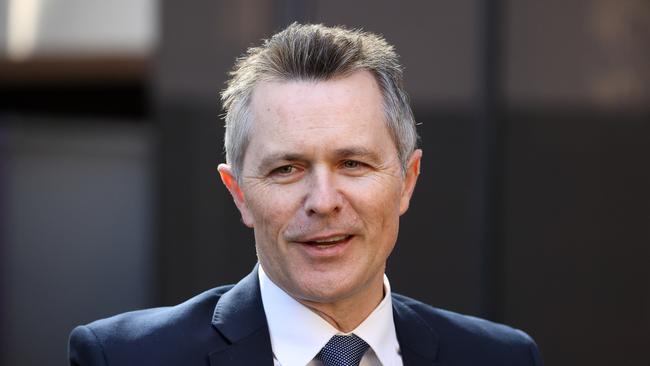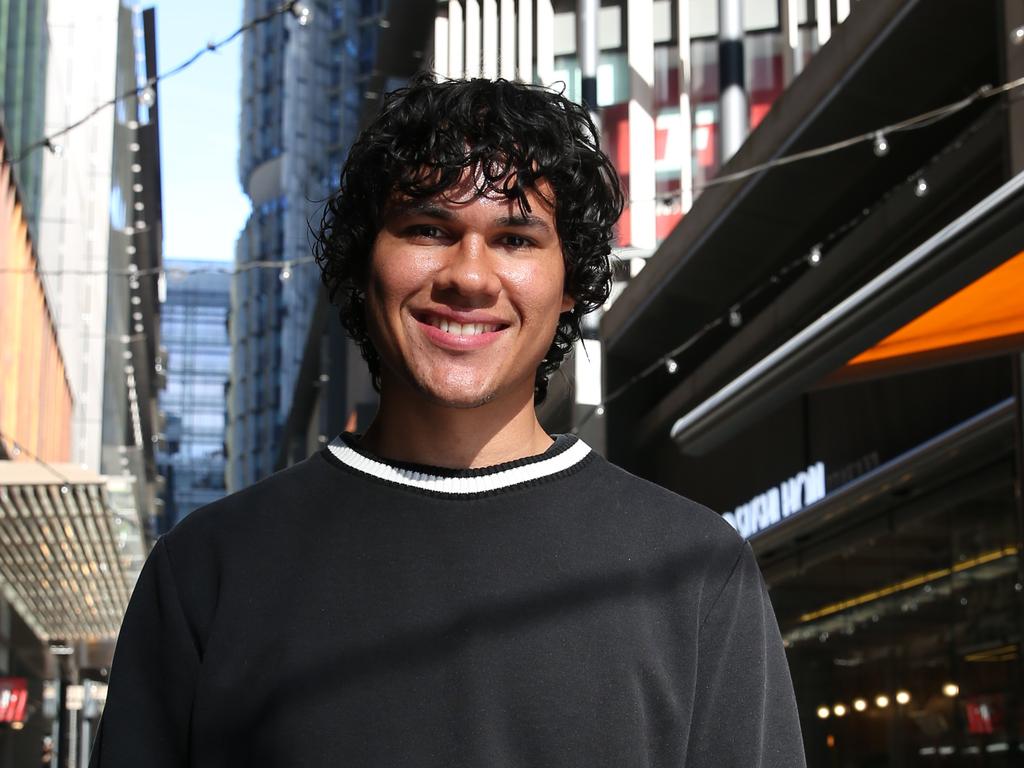First Nations students guaranteed a place in university under Universities Accord reforms
Taxpayers will hand universities extra cash to enrol every Aboriginal and Torres Strait Islander who meets academic entry standards, through Labor’s shake-up of higher education.

Taxpayers will hand universities extra cash to enrol every Aboriginal and Torres Strait Islander who meets academic entry standards, through Labor’s once-in-a-generation shake-up of the higher education sector.
Affirmative action to help more disadvantaged students graduate with degrees is at the heart of the Universities Accord, which will make its initial recommendations on Wednesday.
Aboriginal students stand to gain the most from the accord’s changes, as universities will now be guaranteed funding to enrol every Aboriginal and Torres Strait Islander who qualifies for a place.
The previous Coalition government had guaranteed places for all Indigenous students living in regional and remote areas. But Education Minister Jason Clare will extend the guarantee to Indigenous students in cities and towns, so that places for Indigenous students will be added to the quota of taxpayer-subsidised study places.
The change could double the number of Indigenous students entering university by 2034 – from 5000 to 10,000.
Universities will not lower their admission standards for Indigenous students, as the extra places will go only to students who meet academic entry requirements.
The government has yet to announce if it will offer extra places to other priority groups, such as students with disabilities or from poor families.
In another big change, struggling students will no longer be stripped of taxpayer support if they fail more than half their subjects in a year. Instead, universities will have to support students to lift their grades and stop them dropping out of their degrees.
Mr Clare said universities would not lower their academic standards to pass failing students.
“This isn’t about lowering standards,’’ he told The Australian on Tuesday. “It’s about making sure people get a fair crack and end up with a qualification that can set them up for life.
“The former government introduced a rule that if you have attempted at least eight study units and failed more than half, you are not eligible for further commonwealth support for that course.
“At Western Sydney University this year, it has already led to 1350 students being forced to quit – most of them from poor backgrounds.
“Instead of forcing them to quit, we should be helping them to pass.
“We will require universities to improve support to students who need it and to report on the outcomes for the student following that intervention.’’
Vowing to boost university enrolments for Indigenous students, as well as students from poor families or living in regional areas, Mr Clare will endorse all five priority reforms recommended by his accord panel.
He will order improvements to university governance to prioritise “student and staff safety’’, tackling systemic wage theft and sexual assault on campus.
The accord’s review of Australia’s 43 universities has demanded “bold, long-term change’’ to funding, teaching quality and research, recommending more than 75 reforms. “Complacency cannot be tolerated,’’ the accord panel states in its initial report.
“University funding needs greater certainty, higher education is too unequal, the Closing the Gap target for First Nations tertiary attainment still needs to be narrowed and closed, and the public’s concerns about student safety and staff underpayment need to be addressed.’’
Mr Clare also said that the Albanese government would maintain university funding for another two years, through the Higher Education Contribution Guarantee.
“Universities will be required to invest any funding remaining from their grant each year on things like enabling courses, and extra academic and learning support for students from poor backgrounds, from the regions, and other under-represented groups,’’ he said.
Mr Clare said the proportion of workers with a university degree was set to soar from 36 per cent to 55 per cent over the next three decades.
He said the only way to meet the demand for more tertiary-qualified workers is for universities to enrol more students from the outer suburbs and the regions, along with students from poor families, those with a disability, and Indigenous students.
“If we don’t, we won’t have the necessary skills and the economic firepower we need to make this country everything it can be in the years ahead,’’ Mr Clare will say in an address to the National Press Club on Wednesday.
“Almost every new job that’s created in the years ahead will require a TAFE (Technical and Further Education) qualification or a university degree.’’
Mr Clare is giving an extra $67m in funding to double the number of “tertiary study hubs’’ by setting up 34 more hubs in regional areas and outer suburbs. The hubs will provide computer facilities, internet and study spaces, as well as in-person administrative and academic support for students, regardless of which university they are enrolled in.
The Australian Technology Network’s technology universities said Mr Clare’s five priority actions provided “much needed certainty and stability” while the longer-term higher education reforms in the main part of the report are debated.
ATN executive director Luke Sheehy said the end of the 50 per cent pass rule and the extension of the demand-driven system to all First Nations students would “make an immediate impact for some of our most disadvantaged students”.








To join the conversation, please log in. Don't have an account? Register
Join the conversation, you are commenting as Logout